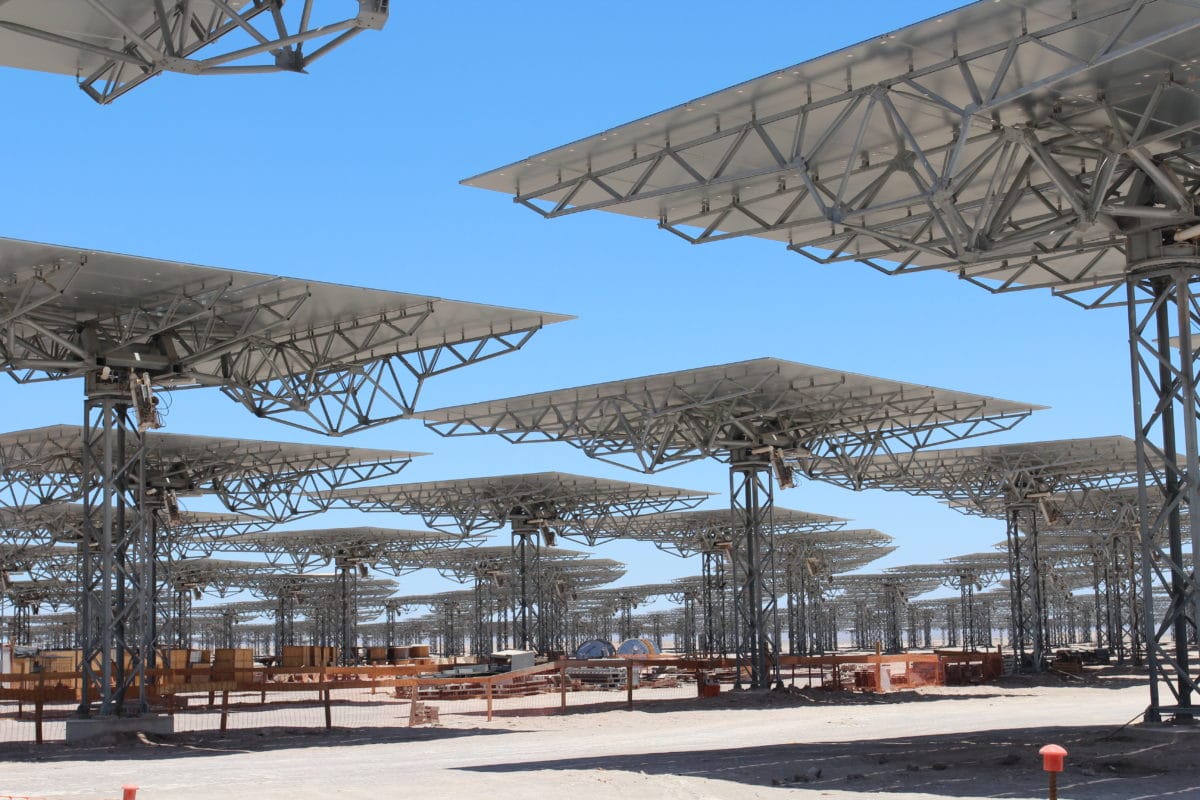From pv magazine Latam
A group of researchers from the Center for Solar Energy Technologies of Fraunhofer Chile has compared costs and prices of utility scale hybrid photovoltaic-concentrated solar thermal (PV-CSP) projects and thermal technologies based on natural gas, concluding that the most competitive configuration in terms of the levelized cost of energy (LCOE) corresponds to a hybrid plant that combines photovoltaic solar energy and concentrating solar power (CSP) with integrated thermal storage.
In a study published in the scientific magazine Energies, the Chilean scientists found the LCOE of four different typologies of hybrid PV-CSP plants is lower than that of natural gas thermal power plants.
Their analysis showed that the best PV-CSP configuration, with 13 hours of storage and with no restrictions for power generation, achieved an LCOE of $53/MWh, while the natural gas technology evaluated, with a plant factor of 85% and a variable cost of fuel of $2/MMBtu has an LCOE of $86/MWh.
“Hybrid solar plants, under certain conditions, are more profitable than their closest competitor for the Chilean grid, and at the same time … they provide significant flexibility and dispatch capacity,” said researcher Aloïs Salmon.
“The CSP technology provides very similar systemic benefits while avoiding significant negative externalities, compared to gas plants, and is more profitable,” said research co-author María Teresa Cerda. “In particular, CSP is very flexible, has no emissions, and is not dependent on external markets for fuel supply. In short, it is a renewable energy that can contribute to reduce the price of the grid and provide a baseload and flexible electricity for Chile.”
Chile is currently hosting a considerable number of CSP projects under development. One of Chile’s major renewable energy projects is the Cerro Dominador solar complex, whose combined CSP and PV capacity is expected to reach 220 MW.
This content is protected by copyright and may not be reused. If you want to cooperate with us and would like to reuse some of our content, please contact: editors@pv-magazine.com.



By submitting this form you agree to pv magazine using your data for the purposes of publishing your comment.
Your personal data will only be disclosed or otherwise transmitted to third parties for the purposes of spam filtering or if this is necessary for technical maintenance of the website. Any other transfer to third parties will not take place unless this is justified on the basis of applicable data protection regulations or if pv magazine is legally obliged to do so.
You may revoke this consent at any time with effect for the future, in which case your personal data will be deleted immediately. Otherwise, your data will be deleted if pv magazine has processed your request or the purpose of data storage is fulfilled.
Further information on data privacy can be found in our Data Protection Policy.